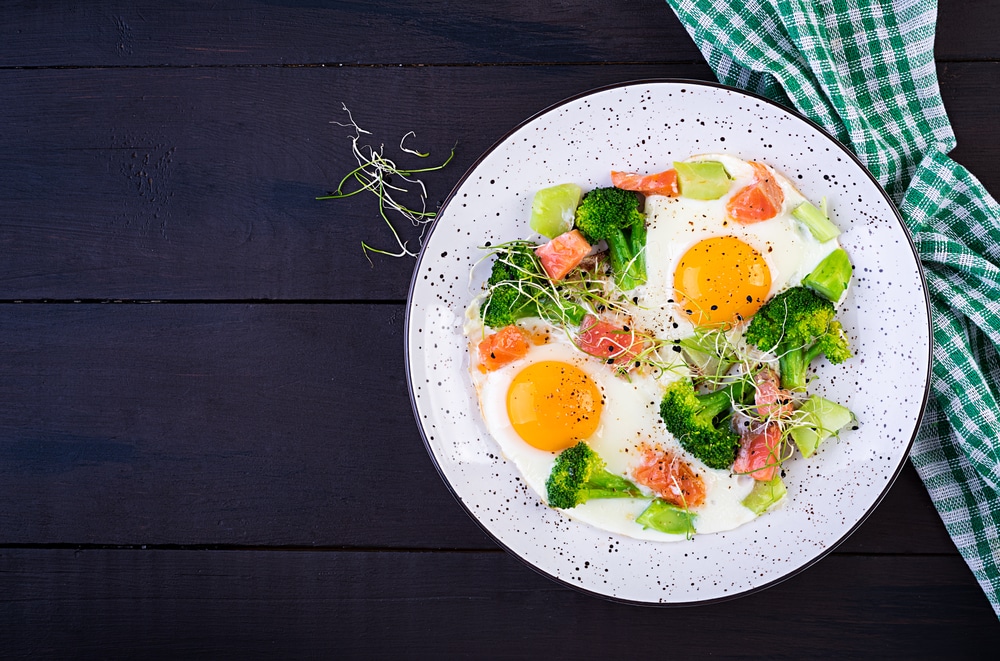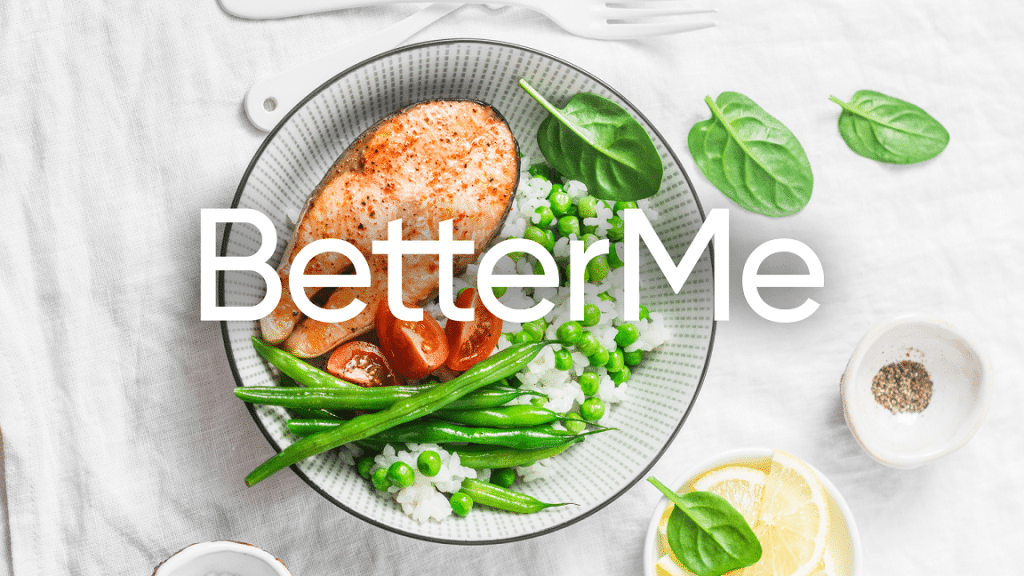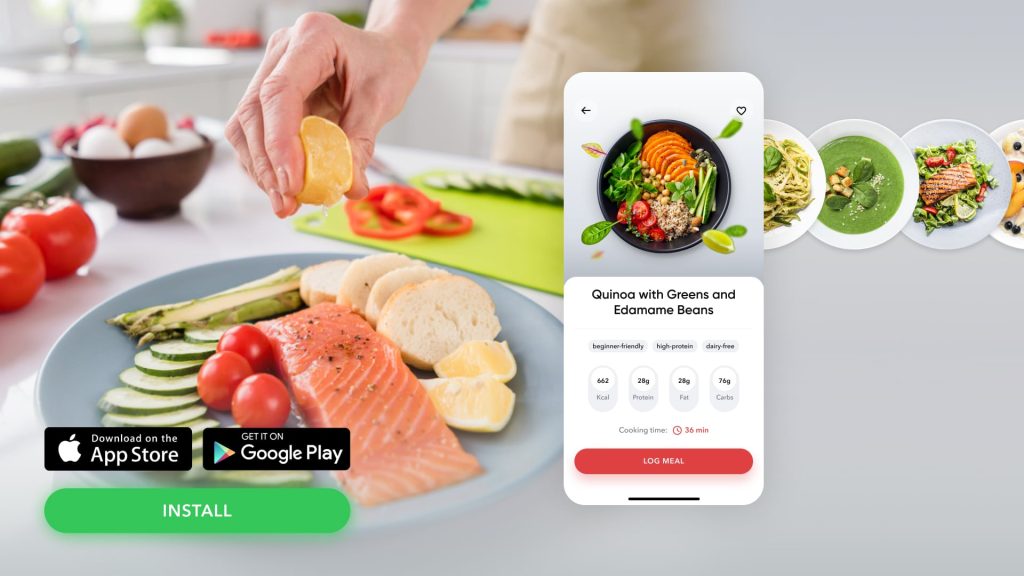How Do I Maximize My Weight Loss On Keto
One of the surest ways to improve self-esteem and reduce depression is to gain confidence in your body and physical appearance. To achieve such peace and comfort in your body, it may become necessary to study a little about weight loss. There are quite a few methods for achieving a slimmer and well-toned body. Techniques used, among others include intermittent fasting, routine workouts, and diets. As for dieting plans, one of the options you might want to consider is the keto diet. But how do I maximize my weight loss on keto, you might ask. The exciting news of how to achieve this is in the following paragraphs.
Get your personalized
meal plan!
The keto refers to a type of diet which requires that individuals who wish to follow its path restrict themselves to consuming low carb foods. The keto diet involves consuming foods that will supply the body with a small amount of glucose, which means just what the body uses to fuel its energy. From this basic description, it may be safe to assume that eating foods that are rich in carbohydrates, starch, and sugar are mostly forbidden while you are on a keto diet (9). Sugary foods and drinks will also have to be stricken from your eating calendar. Ok then, by following these rules how much weight can you lose in a month while on keto?
About The Consumption Of Fats And Proteins
The more you adhere to the consumption of fats and proteins, the better and faster it will be for you to achieve the goal of losing weight. The ketogenic diet governs the weight loss function by denying the body of foods that are rich sources of glucose. Most of the activities that we perform regularly are possible whenever the body breaks down the available sugar in carbohydrates into glucose and then converts them into a ready source of energy. The human brain makes use of most of this glucose supply, using about 120 grams of carbs in a day (7).
What Happens When You Cut Back On The Amount Of High Carb Foods?
If you begin to severely cut back on the amount of high carb foods that you consume, what happens is that the body will exhaust all glucose in the bloodstream and begin to look for other alternatives. Like the famous saying, ‘when the preferable becomes unavailable, then the available becomes preferable’, similarly this is what happens when your body can not find any more sources of sugar in the body. The body, once witnessing a lack of carbohydrate in the bloodstream, begins to use what is stored in the liver and break down muscle tissues to release glucose (9, 11).
However, when this intentional deprivation of the body of sugar continues for an extended period of time, it becomes devoid of readily available glucose. What the body does at this point is for survival – it begins using fat stored in the body as a source for glucose. Here, the hormone insulin which is present in the body becomes secreted in small quantities. Insulin naturally helps to reduce the blood sugar level. Since there is little sugar left in the body at this point, the hormone has nothing else to do but to stay idle. The liver also, at this point, produces ketone from fats. The ketones are used as an energy source in place of glucose (6, 11).
What Is Ketosis?
Simply put, ketosis is what the body experiences during the conversion of fats to ketone because there is a serious lack of glucose. During this stage, the human body becomes effective in fat burning and the subsequent use of the product of this combustion is for energy. Generally, when a person follows the keto diet or practices some intermittent fasting for an extended period, the body will go into ketosis. Because individual morphology and anatomy vary, there is usually no straight answer to the question of how long does it take to get into ketosis (11)?
How Long Should You Be In Ketosis?
The reasons you’re not losing weight while on the keto diet could vary. Generally, how long you should follow a keto diet depends on your personal body goals and your health requirements. If you have yet to experience ketosis, then there is the likelihood that you will not be losing as much fat as you expect. This is because, as long as the body can still find some sugar easily accessible in the bloodstream, it will never look into the alternative of burning fat for energy. After a study was conducted on the ketogenic diet in 2019, it was advised that an individual undergoing the diet should limit consumption of carbs to some 20-50 grams per day (2, 7, 9).
When you are on a keto diet, it is easy to assume that you are not consuming above the stipulated amount of carbs in the form of calorie; this is usually about 5-10% of your daily calorie intake. You may also think that you have done enough to reduce your consumption of carbohydrates. Still, as long as the body keeps finding a supply of sugar from any food that you have consumed, the chances of fat burning happening and ketone production are minimum. To be sure that you are achieving ketosis, which is what the whole diet thing is about, there are kits that you can use to test your urine and confirm if there are indeed ketones present in your body.
Read More: Keto For Women Over 40: How To Make This Diet Work For You
How to speed up weight loss in ketosis?
The ketogenic diet has been linked to a lot of health benefits ranging from better mental health status to lower cholesterol, but it is not unusual that, like most kinds of diet, the primary aim is to lose weight (4, 5). How do i maximize my weight loss on keto? To make sure you are moving towards achievement of your weight loss goals during keto diet, you should consider finding out which foods speed up weight loss on keto. This means that you must know what kinds of food are suitable for consumption.
The keto diet generally works on the principle of low-carb and high-fat food consumption. By implication, you will be consuming plenty of fatty food, moderate protein foods, and low carbohydrate foods. So, how do you jumpstart weight loss on keto?
This Is A List Of What To Eat To Speed Up Weight Loss During The Diet (12):
- Fatty seafood such as tuna, halibut, cod, trout, scallops and salmon.
- Meats from chicken, pork, steak, bacon, turkey, ham, ground beef.
- Oily and fatty foods such as coconut oil, mayonnaise, eggs, butter, margarine and especially avocado oils are essential in this list.
- Dairy products that are rich in fat. Products like full cream, hard and soft cheese, sour cheese make this list easily.
- Certain vegetables like broccoli, cauliflower, pepper, zucchini, lettuce, spinach, asparagus, cabbage, eggplants and olives are permitted.
- Nuts, such as hazelnut, macadamia, pecans, walnuts, peanuts and their butter derivatives can be enjoyed. You should, however, ensure that you are not consuming the sweetened forms of these nuts.
- Berries; such as blackberries, blueberries and raspberries make this list.
- Certain beverages, including black coffee and unsweetened tea, are okay. You may also enjoy certain beverages such as champagne, hard alcohols and dry wine, but they must be drunk responsibly and moderately like what is usually advised.
Foods That Will Hinder The Ability To Lose Weight During Ketosis Include:
- Most kinds of fruits because they have high sugar content. Banana, Apple, cherries, grapefruit, mangos, and pineapple are some of those on the list.
- Grains. Most grains are not permitted because of their high carb content. You should, therefore, try as much as possible to say your goodbye to rice, oats, rye, quinoa, barley, corn, millet, amaranth, bulgur and so on.
- Legumes. Most kinds of beans should be avoided because of their high protein content that may not be right for consumption during a ketogenic diet.
- Starches. It is definitely bye-bye to bread, especially cereal, pasta, pizza, crackers, granola, and flour.
- Sugar and nutritive sweeteners such as honey, sugar cane, maple syrup, splenda, corn syrup, aspartame, and saccharin are not allowed.
- Sugary snacks such as cakes, tarts, pies, ice cream, cookies, candy, and chocolate are a no-no.
- Alcohols, including sweet wines and beers, should be struck from your drink menu.
- Low-fat dairy products like skim milk, skim mozzarella, fat-free yoghurt, and low-fat cheese, are not advised. You should go for the variations of these dairy products that are very rich in fat content.
Reasons why BetterMe is a safe bet: a wide range of calorie-blasting workouts, finger-licking recipes, 24/7 support, challenges that’ll keep you on your best game, and that just scratches the surface! Start using our app and watch the magic happen.
How Do I Maximize (Speed Up) My Weight Loss On Keto?
In order to speed up how do you maximize your weight loss on keto, you need to consider some things. Some of the facts that you must take seriously are discussed below (7).
The Amount Of Protein Consumed
The keto diet permits a considerable volume of protein. The problem, however, is knowing how much protein is suitable since the keto diet is essentially a high-fat diet. When you eat more protein than is required, the body will decide to convert the excess amino acids into glucose in a process called gluconeogenesis. This sugar, instead of ketones from fats, becomes a primary source of energy for the body. The amount of daily protein intake in the form of calories should, therefore, not be more than 35% in order to speed up weight loss.
Consumption Of Plenty Carbohydrate
During a keto diet, you are not allowed to consume some types of energy-giving foods. A person should not consume the nuts and dairy foods which are a good source of fat and acceptable carbohydrates in enormous quantities as they may become a steady supply of glucose to be broken down by the body for fuel. This goes against the goals of ketosis.
The Number Of Calories Consumed Per Day
Every human being has their required daily energy intake. A person who is eating more calories than the body requires during a keto diet may find it hard to lose weight. When you consume foods above what your body needs daily, then you might as well just stop dieting. Since the keto diet is a fat-friendly diet, it may be easy to eat more calories than you require. You should, therefore, take care to evaluate your calorie intake to maintain a balanced weight loss plan.
Consume A Variety Of Snacks
Constant consumption of different kinds of snacks may be adding numbers to your overall calories intake. And guess what? This will ultimately have an adverse effect on the ability to lose weight.
Stress
The kind of stress a person undergoes based on their lifestyle may influence the ability to lose some pounds of flesh. Serious stress disorder can also result in a person craving for certain types of food, usually known as comfort food. These foods, however, could increase the amount of calorie intake, and you know what that means by now, right?
Medical Conditions
Certain medical conditions may not allow for the ease of achieving weight loss during a ketogenic diet. These conditions could include depression and high levels of insulin. It is therefore advisable that before embarking on a weight loss program that you should consult with a dietitian. They will be able to guide you towards what to do and what not to do based on your medical status.
Alcohol Consumption
This is usually restricted during the keto, and the reason is that they contain plenty of sugar that will increase the level of calorie intake without adding any essential nutrients to the body. However, some raw and hard alcohols like rum, gin, and vodka are allowed because of their low-carb content. In any case they should be drunk only moderately because taking in excesses of alcohol might make you begin to crave foods that are not glorified by the diet you are following.
Lack Of Exercise
Since it is necessary to burn fats during ketosis, it may not be a bad idea to engage in certain exercises. Routine workouts help to increase how effective the body is in the breakdown of whole components into usable forms of energy fuel. The more practices you engage in, the more your body metabolizes for effective burning of calories. This burning of calories, especially fatty calories, will lead to weight loss which is the primary purpose of the diet.
Whether you’re a workout beast or just a beginner making your first foray into the world of fitness and dieting – BetterMe has a lot to offer to both newbies and experts! Install the app and experience the versatility first-hand!
Can You Exercise During A Keto Diet?
The answer to this question is usually essential for people whose primary purpose for undergoing a ketogenic diet is to lose weight. For those who are asking, “how do I maximize my weight loss on keto,” it is crucial to ensure that there is a stable relationship between the types of food they consume and the exercise that they involve themselves in. However, since they are already on a ketogenic diet which instructs them to eat more fatty foods than the other classes of food, there may be the need for some aspects of their workout routine to change (1, 10).
The reason for this is because during exercises the body easily gets its energy from glucose instead of fats. The sugars are easily burnt during workouts to supply glucose which is the needed fuel that keeps you going. However, a person who is on a keto diet depends on the burning of fats to produce ketones which are then used to power the training sessions. The key point here is that the body burns fats slowly.
The First Month Of This Dietary Plan
When going through this dietary plan, it may be quite challenging to feel normal during the first month. The possibility of feeling dizzy and tired most of the time may also set in. This is the result of the body trying to adjust to the fact that it has to do more work to burn fats than it would if it had to burn glucose. The body feels sluggish initially and engaging in exercises during this period may be difficult for the body to understand. This happens even to a person who was working out before deciding to go on a keto diet, they are not immune to the initial sluggish feelings (8).
For this reason, it is usually observed that engaging in rigorous workouts such as sprinting, weightlifting and all other forms of exercises that make use of rapid energy bursts will feel strenuous. Since it takes time to convert fats into a usable form of energy, a person may feel totally drained of energy during an exercise. So, if a person does not possess as much endurance as they used to before they started the keto diet, there is no need to worry as it is a common experience (3).
The Solution To Bad Feeling
The solution to this feeling, however, does not involve dropping one’s gloves and stopping exercises altogether. Be it far from the truth, because there are alternative activities which can be engaged in. It would be best if one chooses to participate in the type of training whose intensity is not too high. Within the first few weeks of commencing the keto diet, the dieter should restrict their exercises to light jogging, riding bikes, and doing yoga, among other things. For those that are the weightlifting type, they may need to divide up their usual weights into halves. For instance, if they were lifting 100kg before, then 50kg might be ideal for a start (1).
The good news in all of this is that a combination of keto diet and exercising will yield more weight loss benefits and generally improve the physical and mental state of the dieter. An observation made in the Journal of Strength and Conditioning Research explains that training while undergoing a ketogenic diet could result in an enhancement of lean body mass, which increases the chances of gaining muscles (3, 8).
Read More: 30 Day Keto Challenge: Will Upping Your Fat Intake Help You Lose Weight?
What To Note When Combining The Keto Diet And Exercise
During the combination of keto diet and exercise, the dieter needs to be doubly sure about which keto-friendly foods they are consuming and the quantity (1).
-
Protein Recommendation While Exercising On Keto
The protein content is usually considered a top priority for an athletic keto dieter because it is a bodybuilding nutrient that will help an active trainer to build muscles. If you do not consume sufficient protein, you may lose muscle mass. In losing body mass, you may need to consume more food to replenish, and this may skyrocket your daily calorie intake, which is not advisable.
An athlete who is on the keto diet will need to consume more protein than usual since the body will be needing more of it to supply the muscles with glucose during gluconeogenesis.
-
Carbohydrate Recommendation While Exercising On The Keto Diet
Generally, during a ketogenic diet, carbohydrates consumption should be at the barest minimum. You may start with no more than 35 grams of carbs daily. The type of exercise you are also engaged in will determine if this increased consumption in carb will prevent you from achieving ketosis. If you engage in exercises of high-intensity, you may need to consume a little over 35grams per day for performance enhancement.
-
Fat Recommendation While Exercising On The Keto Diet
Fatty foods are usually to consume in a major way during keto. You must ensure that you strictly abide by the recommended calories. If you eat less than recommended, you will lose weight but eating more than recommended could make you gain weight. You are then either not making enough gains from a workout or not achieving the purpose of going on a diet. For this reason, fatty foods should supply about 70% of your daily calorie intake. You can switch the number up or down, depending on your goals.
If you want to gain weight, you should eat an extra 250-500 calories while if you wish to lose weight you may need to subtract 250-500 calories from your daily requirement.
Conclusion
Going on a keto diet is a great way to maximize your weight loss. So, for those who are asking, “how do I maximize my weight loss on keto,” they should ensure that the foods they eat are the essential ones during this period. The process of exercising, at the same time during a keto diet can be a bit complex for individuals who are high performers or are involved in sporting activities. An individual who engages primarily in cardiovascular exercises during the dietary plan will find it easy to adapt to the energy needs. This is because during aerobic exercises the body does not necessarily need to burn glucose for the required effects.
DISCLAIMER:
This article is intended for general informational purposes only and does not address individual circumstances. It is not a substitute for professional advice or help and should not be relied on to make decisions of any kind. Any action you take upon the information presented in this article is strictly at your own risk and responsibility!
SOURCES:
- Complete Guide to Exercise on the Ketogenic Diet (2018, ruled.me)
- Effects of chronic social stress on obesity (2012, ncbi.nlm.nih.gov)
- Here’s What You Need To Know About Working Out On The Keto Diet (2019, womenshealthmag.com)
- Is the keto diet healthy or safe (2018, cookinglight.com)
- Is the Keto Diet the Secret to Better Brain Health? (2018, cookinglight.com)
- Ketogenic diet (2020, ncbi.nlm.nih.gov)
- Reasons for not losing weight on a keto diet (2019, medicalnews.com)
- The Effects of Ketogenic Dieting on Body Composition, Strength, Power, and Hormonal Profiles in Resistance Training Males (2017, journals.lww.com)
- The nutrition source (n.d., hsph.harvard.edu)
- What to know about exercise and how to start (2019 medicalnews.com)
- What to know about ketosis (2020, medicalnewstoday.com)
- What You Can (and Can’t) Eat on a Keto Diet (2020, goodhousekeeping.com)

















